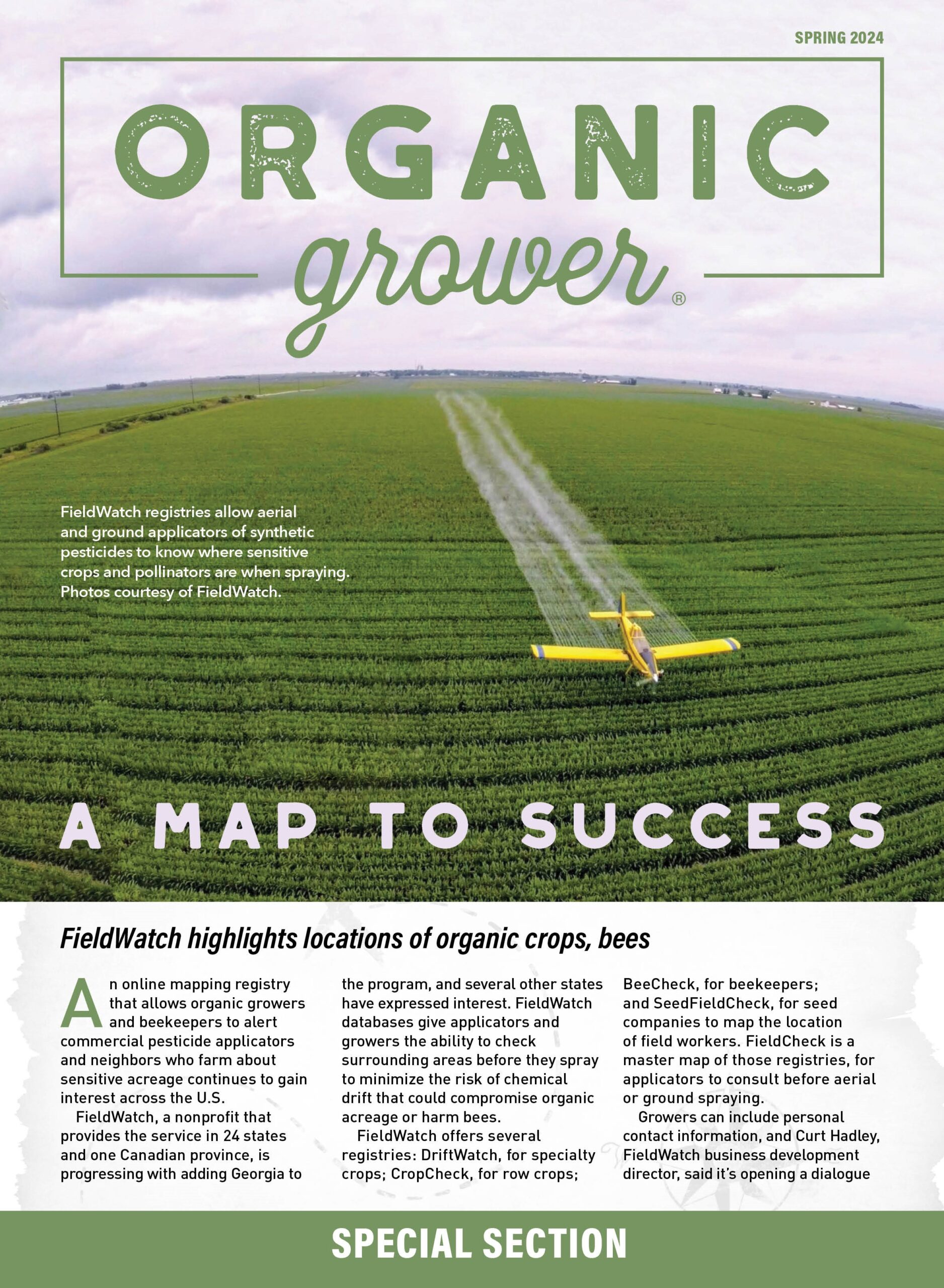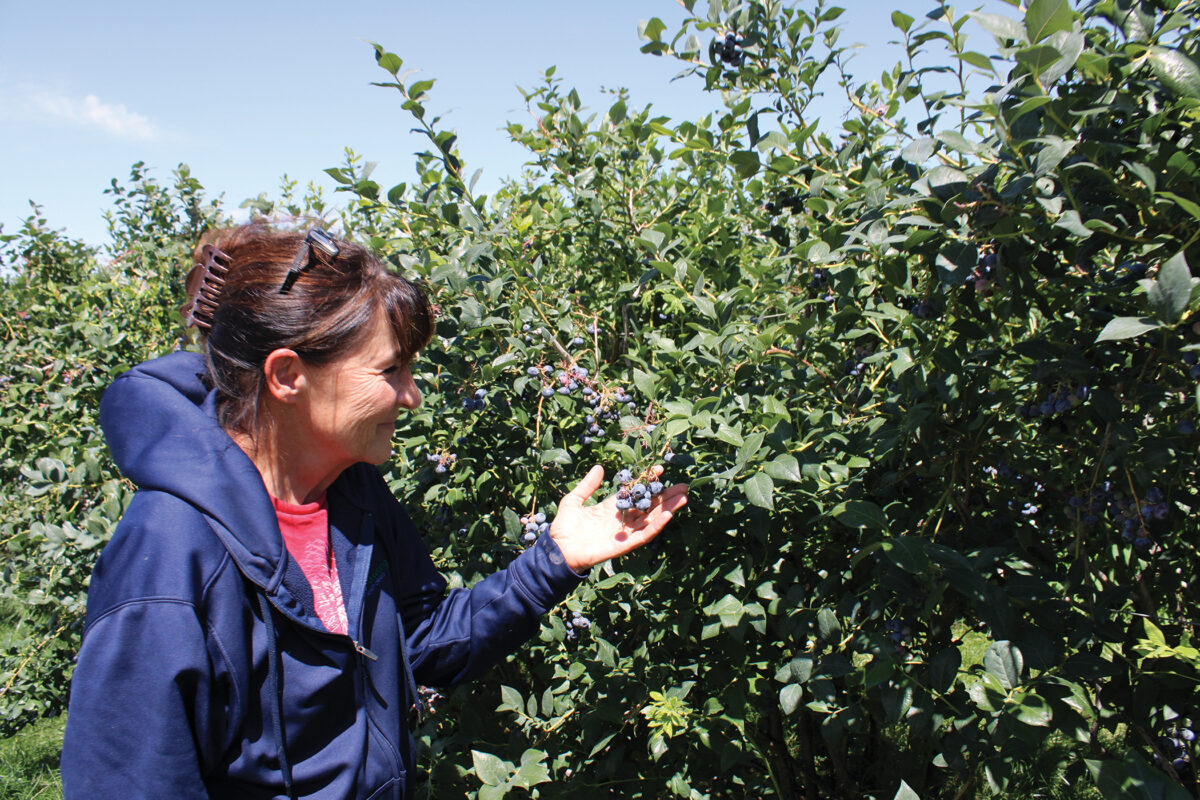
Jun 5, 2023
Berry boom: Washington organic grower shifts focus to blueberries
Organics are central for a Washington tree fruit grower which successfully transitioned to blueberries.
All of the blueberries grown by Applegate Orchards/Blue Mountain Farms, in Burbank, Washington, in eastern Washington, are certified organic.
Applegate usually begins harvesting Northern Highbush blueberries in mid-June with production generally finishing in September. Though it harvests many varieties for fresh, processing and juice companies, the focus is for fresh blueberries being marketed through Naturipe Farms.
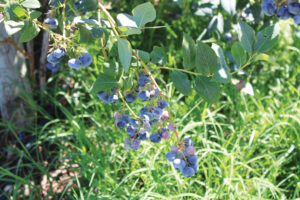
Because organic growers are restricted on applying only crop protectants certified for organic production, most of Applegate’s weeds are hand pulled, said Shirley Mason, owner. It sprays only with organic burndown, using an organic herbicide which burns plant tops but doesn’t travel to the roots, requiring hand pulling of some of the weeds surrounding the plants. Applegate lays weed mats in all its rows.
The mats are effective in controlling weeds, though occasional spraying around the weed mat edges remains necessary.
Some berries can’t handle recent years of extreme heat. During the summer of 2022, the region experienced 60 consecutive days of 100° average temperatures. Fewer cool nights and less chilling hours stress plants, requiring fruit cooling via misters.
With fertilizer costs almost doubling in recent times, Applegate closely watches expenses and how it applies the product, using smaller amounts and working smarter, Mason said.
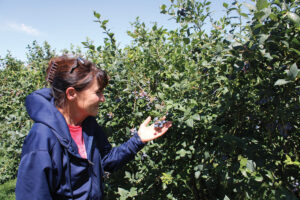
Transition to organics
During the 1990s, Mason and her former husband bought land and began planting apple trees. Later that decade, some difficult years prompted the couple to diversify. Studying crops and talking with other growers, along with backyard experiments, pointed the couple to blueberries.
In the late 1990s, Applegate began transitioning to organics and became organically certified In 2000. Applegate is certified through Washington State Department of Agriculture and Washington State University (WSU).
In 2002, it began replacing blocks of apples with its first blueberry bushes. Like with apples, limited berry production begins in the second to third year, with another couple years required before full production commences.
“We were able to start planting into straight organic ground when we started blueberries,” Mason said. “In 1998, we had to find something different, we had to find our niche, something that made us different from anyone else, or find a window that would work.”
Applegate continually removes apple trees and Highbush Rabbit Eye varieties, which can’t tolerate the Northwest’s winters. It replanted high-chill Duke, Legacy, Liberty, Aurora and Last Call varieties. A handful of other varieties remain, but Applegate is planning to replant newer ones. Applegate relies on WSU and Michigan State University as well as new varieties being developed by Berry Blue.
Early on, organic blueberries drew strong returns, but “lately, the price of organics has been about the same as conventional,” Mason said. “The price of what we’re getting back isn’t going up with the increase in economics. The last couple of years have been kind of tough.”
Evolving organic future
Applegate is a BerrySmart test farm. The field project from innov8.ag, a Walla Walla, Washington, agricultural technology startup, helps growers grow and harvest blueberries more efficiently.
Mason welcomes bringing new technology to her groves. “This will help us better evaluate and predict our production,” she said.
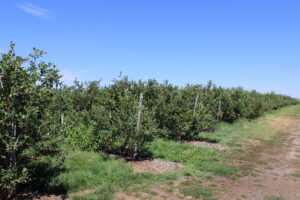
Mason’s interest in organics was spurred during the early years of her then-apple farm, when she had to stop her son from eating an apple plucked from a tree because it needed to be washed after being sprayed that morning.
“Just that little thing kind of bothered us, that we could not eat our own fruit until we had washed it,” she said.
Two decades ago, organic growers had to explain what that meant. When Applegate sold its berries at a farmers market, consumers saw the organic sign and inquired why their blueberries were more expensive than the non-organic grower in the next stall.
In the last 20 years, though, Mason has seen a growing understanding of and interest in organics, and that increased acceptance is among the factors keeping Applegate on its current path.
“We will continue to stay organic, mainly for health reasons,” Mason said. “We can continue to feel good about what we’re eating and not worry about it.”

